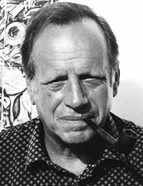

The author of Órfico ofício [Orphic craft] (poetry, 1978) has a vast body of work as a poet and fiction writer, playwright, essayist and critic, chronicler and poetry translator, alongside a distinguished and respected career as a professor at the Faculdade de Letras de Lisboa [School of Arts and Humanities of Lisbon] (where he graduated in 1951), He was responsible for creating the Literature Theory course (1958). He held management positions and collaborated extensively with journals such as Távola Redonda (1950-1954), Graal (1956-1957), Seara Nova , Diário Popular (1954-1957), among others. He was Secretary General of the Sociedade Portuguesa de Autores [Portuguese Society of Authors] (1965-1974), director of the newspaper A Capital (1974-1975), Secretary of State for Culture (1976-1979), president of the Associação Portuguesa de Escritores [Portuguese Writers’ Association] (1984-1986), director of the Travelling and Permanent Library Service of the Calouste Gulbenkian Foundation (1981-1996) and, at the same foundation, director of the journal Colóquio-Letras (1984-1996). These elements (and others listed in the bibliography of his work) already show that he was a personality who early on asserted himself as active and interventionist: alongside his work as a writer and critic, he participated in various aspects of civic and intellectual life, taking on responsibilities that reveal his many facets. His career as a university professor, essayist and critic reveal him to be a highly informed scholar, unconcerned with pursuing an orthodox career: he never obtained a doctorate – but his volumes of criticism and essays are superlative proof of his fruitful, well-informed and tenacious rigour, as recognised by the University, which awarded him the status of visiting professor in 1990. This was well recognised by the many generations of students who benefited from his exemplary teaching between 1957 and 1963, and from 1970 until the end of his life.
This work is financed by national funds through FCT - Foundation for Science and Technology, I.P, in the scope of the projects UIDB/04311/2020 and UIDP/04311/2020.
